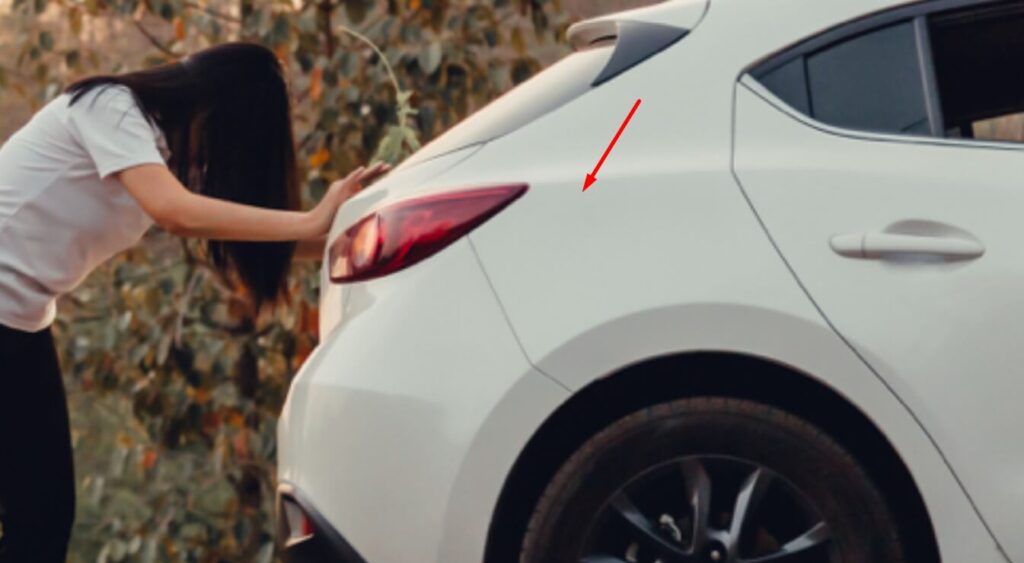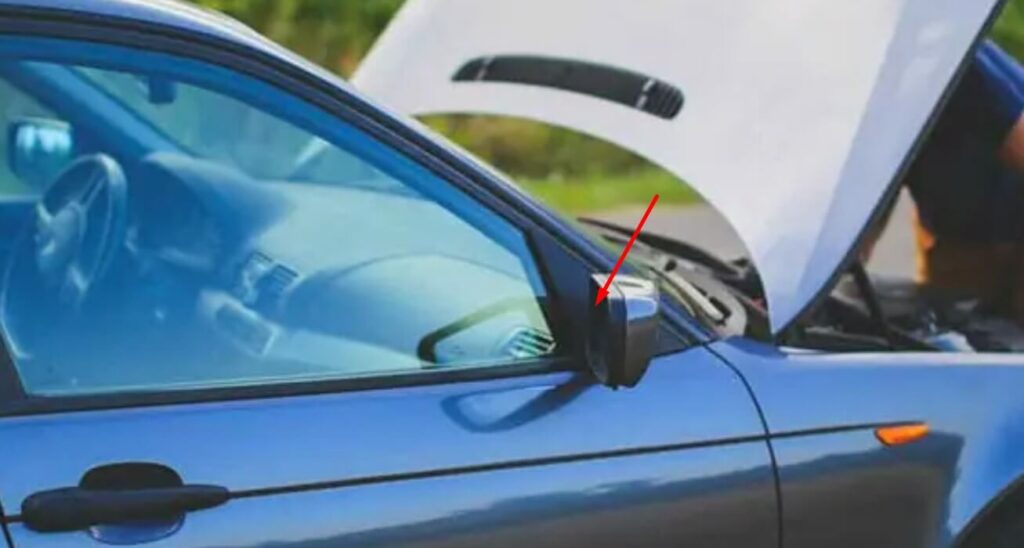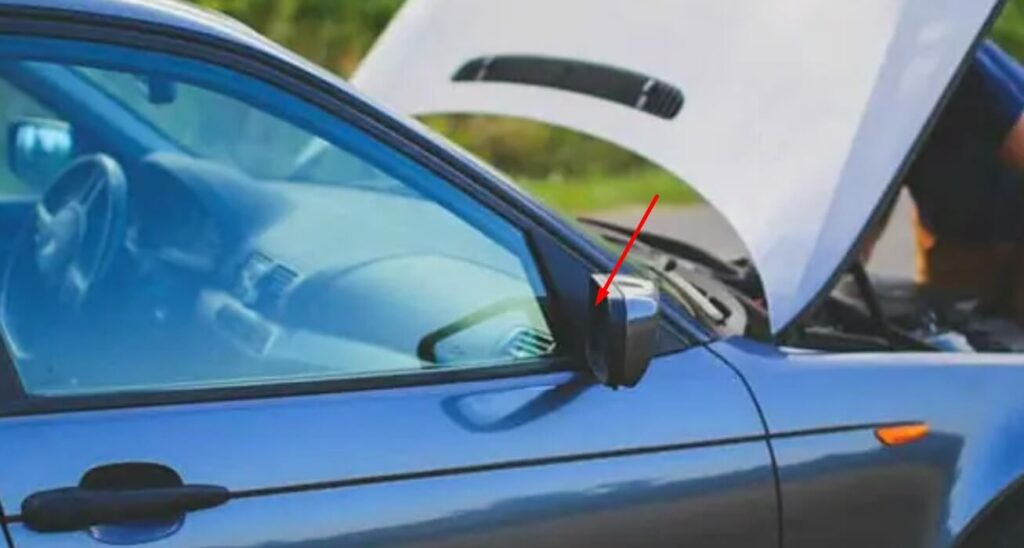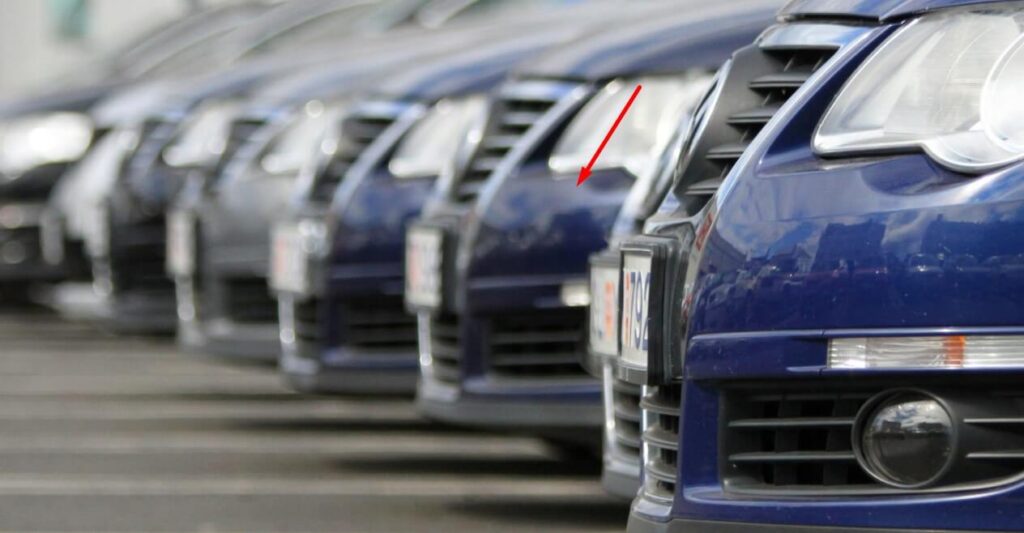No, Florida does not have a Lemon Law for used cars. The Florida Motor Vehicle Warranty Enforcement Act only applies to new or demonstrator motor vehicles.
However, the federal Magnuson-Moss Warranty Act does protect consumers who purchase used cars, regardless of whether or not the car is still covered by the manufacturer’s warranty.
Under the Magnuson-Moss Warranty Act, consumers have the right to expect that any product they purchase, new or used, will be free from defects. If a product does have a defect, the manufacturer must repair or replace it, or refund the purchase price.
If you have purchased a used car in Florida and believe that it may be a lemon, you should first contact the dealer from whom you purchased the car. If the dealer is unable to repair the defect, you should contact the manufacturer. If the manufacturer is also unable to repair the defect, you may be able to file a claim under the Magnuson-Moss Warranty Act.
To file a claim under the Magnuson-Moss Warranty Act, you must first send a written notice to the manufacturer. The notice should describe the defect in detail and explain what steps you have already taken to try to have the defect repaired. The manufacturer must then respond to your notice within a reasonable amount of time. If the manufacturer is unable to repair the defect, you may be able to file a lawsuit in federal court.
If you are considering filing a lawsuit under the Magnuson-Moss Warranty Act, you should contact a consumer protection attorney. An attorney can help you understand your rights and options, and can represent you in court.

Is there a 30-day lemon law in florida?
Florida does not have a specific 30-day lemon law that applies universally to all types of vehicles. However, the state does provide consumer protection under the Florida Lemon Law, which generally covers new or demonstrator vehicles sold or leased in Florida that have serious defects affecting their use, value, or safety within the first 24 months or 24,000 miles, whichever occurs first.
To be eligible for protection under this law, the vehicle must undergo a reasonable number of repair attempts, and the issues must persist. Consumers are advised to review the specific details and requirements outlined in the Florida Lemon Law to understand their rights and responsibilities in the case of a defective vehicle.

How does a car qualify for lemon law in florida?
In Florida, a car qualifies for protection under the state’s Lemon Law if it meets certain criteria. Generally, the law applies to new or demonstrator vehicles that have a nonconformity, which is a defect or condition that significantly impairs the use, value, or safety of the vehicle, and that arises within the first 24 months or 24,000 miles, whichever comes first.
To be eligible, the vehicle must undergo a reasonable number of repair attempts for the same issue, and the problem must persist despite these efforts. Alternatively, if the car has been out of service for a cumulative total of 15 days or more due to repairs, it may also qualify. It’s essential for consumers to carefully review the specific details outlined in the Florida Lemon Law to determine if their vehicle meets the eligibility criteria for protection.

Understanding Florida’S Lemon Law For Used Cars
Florida’s Lemon Law for used cars offers protection to consumers who purchase a defective vehicle. It allows them to seek remedies if the vehicle turns out to be a lemon, meaning it has substantial defects or issues that affect its safety, value, or use.
To better comprehend this law, let’s take a closer look at its definition, scope, applicability, and key provisions.
Definition Of Lemon Law For Used Cars In Florida:
- The Lemon Law for used cars in Florida is officially known as the Motor Vehicle Warranty Enforcement Act.
- It covers used cars that were sold or leased in Florida and are still under warranty.
- The law applies to both vehicles purchased from dealerships and private sellers.
- In order to be considered a lemon, the vehicle must have significant defects that impair its use, value, or safety.
- These defects must be covered by the warranty and unable to be repaired after a reasonable number of attempts.
Scope And Applicability Of The Law:
- The Lemon Law covers all types of used vehicles, including cars, trucks, motorcycles, and recreational vehicles.
- It applies to vehicles that are less than ten years old and have been driven less than 100,000 miles.
- The law extends its protection to both the original purchasers of the vehicle and subsequent owners who are still within the warranty period.
- Dealerships are required to inform consumers about their rights under the Lemon Law by providing a written disclosure statement.
Key Provisions And Requirements:
- According to the law, the warranty period must be at least 24 months or 24,000 miles, whichever occurs first.
- The vehicle must be taken to an authorized service center for repair attempts.
- The law specifies that the manufacturer or authorized service center has a reasonable number of attempts to fix the defects.
- If the defects persist after a reasonable number of repair attempts, the consumer may be entitled to a refund or replacement vehicle.
- The manufacturer is responsible for any reasonable expenses incurred during the repair attempts, such as towing or rental car costs.
Keep in mind that consulting an attorney specializing in lemon law cases is advisable if you believe your used vehicle falls under the Lemon Law’s criteria. They can guide you through the legal process and help you assert your rights as a consumer.
Remember, understanding the Lemon Law can empower you to seek the appropriate remedies if you find yourself with a lemon of a used car in Florida.
Qualifying For Protection Under Florida’S Lemon Law
Florida’s Lemon Law offers protection for qualifying used cars, ensuring consumers have recourse if they purchase a defective vehicle.
Florida’s Lemon Law offers protection for consumers who unknowingly purchase used cars that turn out to be defective. If you find yourself in this unfortunate situation, it’s important to understand the eligibility criteria, duration of coverage, and the proof of defect and repair attempts required to qualify for protection under Florida’s Lemon Law.
Let’s delve into these important points.
Eligibility Criteria For Used Cars:
- The lemon law covers used cars purchased or leased within 24 months or 24,000 miles of the original purchase or lease date.
- The vehicle must be primarily used for personal, family, or household purposes.
- The car must have a substantial defect that impairs its use, value, or safety.
- The defects must not be a result of abuse, neglect, or unauthorized modifications made by the consumer or a third party.
- The manufacturer or its authorized service center must have had a reasonable number of attempts to repair the defects.
Duration Of Coverage:
- The lemon law coverage lasts for 24 months after the delivery of the vehicle to the consumer.
- If the car is out of service for repairs for a cumulative total of 30 days during the coverage period, it may qualify for protection under the lemon law.
Proof Of Defect And Repair Attempts:
- To qualify for protection, the consumer must provide written notice to the manufacturer or authorized service center about the defects.
- The manufacturer or its authorized service center should be given a reasonable number of attempts to repair the defects.
- If the defects still persist after a reasonable number of repair attempts, the consumer should request the manufacturer to buy back the vehicle or provide a replacement.
- Keep accurate records of all repair orders, receipts, and any communication with the manufacturer or authorized service center.
- It’s important to cooperate with the manufacturer’s attempts to repair the defects.
Remember, each case is unique, and it’s recommended to seek legal advice to understand your rights and options under Florida’s Lemon Law.
By knowing the eligibility criteria, duration of coverage, and the proof required, you can navigate the process with confidence and protect your rights as a consumer.
How does the lemon law work in florida?
The Florida Lemon Law, also known as the Motor Vehicle Sales Warranties Act, is a state law that protects consumers who purchase new vehicles with defects that cannot be repaired after multiple attempts. The law covers cars, trucks, and motorcycles, but not recreational vehicles or vehicles weighing over 10,000 pounds.
To qualify for the lemon law, the defect must substantially impair the use, value, or safety of the vehicle. It must also be reported to the manufacturer or its authorized dealer within 24 months of the original delivery date.
Once the defect is reported, the manufacturer has a “reasonable number of attempts” to repair it. If the manufacturer fails to repair the defect after a reasonable number of attempts, or if the vehicle is out of service for repair for a cumulative total of 30 days (60 days for motorcycles), the consumer may be eligible for a refund or replacement vehicle.
To pursue a lemon law claim, the consumer must first send the manufacturer a written notice of their intent to arbitrate. The notice must include the vehicle’s make, model, year, VIN number, and the specific defect(s). The consumer must also provide the manufacturer with a copy of all repair records.
If the manufacturer does not respond to the notice within 10 days, or if the consumer is not satisfied with the manufacturer’s response, the consumer may file a request for arbitration with the Florida New Motor Vehicle Arbitration Board. The arbitration board will hold a hearing to determine whether the vehicle is a lemon. If the arbitration board finds that the vehicle is a lemon, it will order the manufacturer to repurchase the vehicle and refund the full purchase price to the consumer.
The consumer may also choose to pursue a lemon law claim in court instead of arbitration. However, if the consumer chooses to go to court and loses, they may be responsible for the manufacturer’s attorney’s fees.
Dealership sold me a bad used car what can I do florida?
If a dealership sold you a bad used car in Florida, you have a few options:
- Try to negotiate with the dealership. The first step is to try to resolve the issue directly with the dealership. You may be able to negotiate for a refund, a replacement vehicle, or repairs to the car.
- File a complaint with the Florida Department of Highway Safety and Motor Vehicles (DHSMV). The DHSMV can investigate your complaint and take action against the dealership if necessary.
- File a lawsuit against the dealership. If you are unable to resolve the issue with the dealership or the DHSMV, you may need to file a lawsuit. You can sue the dealership for breach of contract, fraud, or other violations of the law.
Does lemon law apply to used cars in florida?
No, the Florida Lemon Law does not apply to used cars. The law only applies to new or demonstrator motor vehicles or recreational vehicles sold or long-term leased in the state.
However, there are some other protections available to consumers who purchase used cars in Florida. For example, the federal Magnuson-Moss Warranty Act covers any defect that occurs within the vehicle manufacturer’s warranty irrespective of the state’s lemon law. Additionally, implied warranties of merchantability and fitness for a particular purpose may apply to used cars sold by licensed dealers.

Steps To Follow If You Have Purchased A Lemon Used Car In Florida
If you have purchased a lemon used car in Florida, there are steps you can follow to protect yourself. While Florida does not have a specific lemon law for used cars, you can explore options such as filing a complaint with the Florida Attorney General’s Office or pursuing legal action to seek compensation.
It is important to gather evidence, keep records of repairs, and consult with a lawyer specializing in consumer law.
Initial Steps After Discovering The Defect:
- Verify that your car meets the criteria for a lemon used car in Florida. The defect must substantially impair its use, value, or safety.
- Familiarize yourself with the Florida Lemon Law to understand your rights and expectations.
- Review your purchase contract, warranty information, repair records, and any other relevant documents to gather evidence of the defect and repair attempts.
Notifying The Manufacturer Or Dealer:
- Contact the manufacturer or dealer promptly to notify them of the defect. Preferably, do this in writing and keep a record of all communications.
- Clearly describe the problem and provide supporting evidence such as photographs, videos, or repair invoices.
- Request a repair or replacement, mentioning that you believe your vehicle qualifies as a lemon under the Florida Lemon Law.
Documenting The Repair Attempts And Failures:
- Keep detailed records of all repair attempts, including dates, descriptions of the issue, and the repair shop’s information.
- Make sure each repair attempt is documented on invoices or work orders.
- If the defect persists or reoccurs after repair attempts, make note of it and provide this information to the manufacturer or dealer.
- Keep copies of all correspondence, email exchanges, or any other communication related to the repairs.
Remember, when dealing with a lemon used car in Florida, it is essential to follow the proper steps to protect your rights. By properly documenting the defect, repair attempts, and notifying the manufacturer or dealer, you can present a strong case if legal action becomes necessary.
Seek legal advice if you are unable to resolve the issue directly with the manufacturer or dealer.
Resolving Disputes And Seeking Compensation Under Florida’s Lemon Law
Florida has a Lemon Law that protects consumers who purchase used cars in the state. This law allows individuals to seek compensation and resolve disputes if they buy a vehicle that turns out to be a lemon. With the Lemon Law, consumers have legal options to ensure they are not stuck with a faulty car.
Florida’s Lemon Law provides protection to consumers who find themselves stuck with a defective used car. If you have recently purchased a used car in Florida and it turns out to be a lemon, you’re probably wondering how you can resolve the issue and seek compensation.
In this section, we will explore the steps you can take to address your concerns under Florida’s Lemon Law.
Escalating The Issue To The Manufacturer
If you discover that your used car has a persistent defect that affects its safety, value, or utility, the first step is to notify the manufacturer. Here’s what you can do:
- Contact the manufacturer by phone or in writing to report the defect.
- Keep a detailed record of all your communication, including dates and names of the people you spoke to.
- Provide the manufacturer with all the necessary information about the defect, including documents and photographs, if applicable.
- Request a resolution, such as a repair or a refund.
Mediation And Arbitration Processes
If the manufacturer fails to resolve the issue or refuses to take responsibility, you can consider alternative dispute resolution methods like mediation or arbitration. Here’s how these processes work:
- Mediation: In mediation, a neutral third-party mediator works with both you and the manufacturer to facilitate a resolution. The mediator helps guide the discussion and encourages both parties to find common ground.
- Arbitration: In arbitration, an impartial third party hears your case and makes a decision that is binding on both you and the manufacturer. This process is less formal than a court trial but offers a legally binding resolution.
Legal Recourse And Filing A Lawsuit
If all previous attempts to resolve the issue fail, you may need to file a lawsuit against the manufacturer. Here’s what you should know:
- Consult with an experienced lemon law attorney who can guide you through the legal process.
- Gather all the evidence related to the defect, including repair records, correspondence with the manufacturer, and any other supporting documents.
- Ensure that you meet the necessary requirements to file a lawsuit under Florida’s Lemon Law, such as adhering to the statute of limitations.
- Prepare for the legal proceedings, including attending court hearings, presenting your case, and seeking the compensation you deserve.
Remember, each case is unique, so it’s essential to consult with a qualified attorney who can provide personalized advice based on your specific situation. Resolving disputes under Florida’s Lemon Law can be a complex process, but by taking the right steps and seeking appropriate legal guidance, you can increase your chances of obtaining a favorable outcome.
Resources And Organizations For Assistance In Florida Lemon Law Cases
Discover valuable resources and organizations in Florida for assistance with Lemon Law cases, particularly regarding used cars. Get expert guidance and support to navigate the complexities of the Lemon Law and protect your consumer rights.
Florida Lemon Law is a crucial protection for consumers who purchase used cars that turn out to have serious defects. If you find yourself facing such a situation, it’s essential to know the resources and organizations that can provide assistance in Florida Lemon Law cases.
Whether you need guidance, legal help, or information, the following entities can be of great support:
Department Of Highway Safety And Motor Vehicles
- The Department of Highway Safety and Motor Vehicles (DHSMV) in Florida is responsible for overseeing vehicle-related matters, including Lemon Law cases.
- They have a dedicated Lemon Law Hotline where consumers can get information about their rights and the process of filing a complaint.
- The DHSMV website offers resources and guidelines to help consumers understand the Lemon Law and navigate through the resolution process.
Florida Attorney General’S Office
- The Florida Attorney General’s Office is another valuable resource for individuals dealing with Lemon Law issues.
- They provide information about consumer rights, including the Lemon Law, on their website.
- Consumers can reach out to the Consumer Protection Division of the Attorney General’s Office for guidance and to file complaints if necessary.
Consumer Advocacy Groups And Legal Aid Services
- Numerous consumer advocacy groups and legal aid services in Florida specialize in assisting consumers with Lemon Law cases.
- These organizations may provide free or low-cost legal representation, information about consumer rights, and guidance on how to resolve disputes.
- Some noteworthy consumer advocacy groups in Florida include the Consumer Federation of America and the Florida Consumer Action Network.
Remember, while these resources and organizations can be helpful, it’s crucial to consult legal professionals for specific advice regarding your Lemon Law case.
Frequently Asked Questions
How Long Is The Lemon Law On Used Cars In Florida?
The lemon law on used cars in Florida covers vehicles for a period of 24 months.
How Long Can You Return A Used Car In Florida?
You can return a used car in Florida within a specific timeframe.
What Qualifies For Lemon Law In Florida?
In Florida, lemon law applies if a new or leased vehicle has defects that substantially impair its use, safety, or value.
Can I Sue A Dealership For Selling Me A Lemon Florida?
Yes, you can sue a Florida dealership if they sold you a lemon vehicle.
Conclusion
Ultimately, it is clear that having knowledge of your rights as a consumer is essential when purchasing a used car in Florida. Although there isn’t a specific lemon law for used cars in the state, there are various other laws and regulations that can help protect you from purchasing a lemon.
By thoroughly inspecting the vehicle, obtaining a vehicle history report, and getting a pre-purchase inspection from a trusted mechanic, you can minimize the risk of ending up with a faulty car. In case you do experience issues with your used car, don’t hesitate to seek legal advice and explore options such as the Magnuson-Moss Warranty Act or other consumer protection laws.
Remember, it’s always better to be informed and proactive instead of dealing with the consequences afterward. Happy car shopping!
